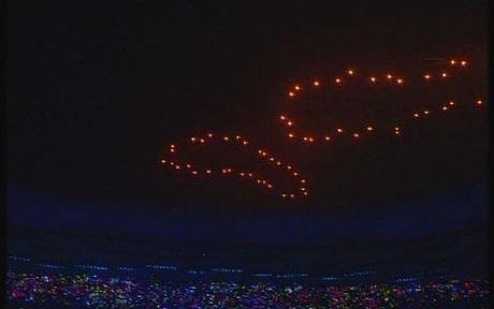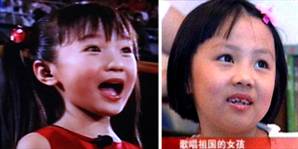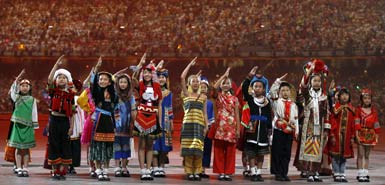Provocative Prompts
Beijing's 2008 Olympic Games
The language surrounding Beijing's hosting of the 2008 Olympic games can tell us a lot about how globalization and nationalism are being framed and understood in the 21st Century. For example, what does it mean to say—as the media frequently did—that the spotlight is on China as it emerges onto the international stage for its debut when its roots reach back to ancient times? Or that the Olympics are an opportunity for China to showcase itself to the global community? What are the implications of all this theatrical rhetoric? Why frame globalization with this spectacular rhetoric?
On a slightly different note, what do you think when we compare these lines with the popular metaphor of these Olympics as China's "coming out party"?
What could be more of a spectacle than the impressive opening ceremonies that cost China over $300 million? Just take a look at some of the choices made to communicate certain messages. . . and leave others out:
The fireworks prompted a lot of awed responses. But soon after, news leaked that the images millions saw on their television sets were actually pre-recorded and digitally enhanced with a 3-D computer graphics sequence. Investigative reporting revealed that an enormous effort went into making it appear live, as the an article from the Telegraph reports: "They sought advice from the Beijing meteorological office as to how to recreate the hazy effects of Beijing's smog at night, and inserted a slight camera shake effect to simulate the idea that it was filmed from a helicopter" How does this sleight of hand influence your reaction to the opening ceremonies? How much does being real and live affect the message it seeks to convey?
The same question can be asked about one of the most emotional moments in the ceremony: the singing of "Ode to the Motherland" by a small child named Lin Miaoke. The beautiful voice you heard, however, was that that of Yang Peiyi, the girl pictured on the right. At the last minute, Chinese officials decided that Yang Peiyi—and we quote—"wasn't cute enough."
While certainly not the first case of lip-synching, how does this switch-a-roo affect the sense of "flawlessness" that China so clearly wishes to communicate? Does it at all? What does this rhetorical choice mean and what are its implications when delivered on such a grand and global stage?
The media guide for the opening ceremony reads, "Fifty-six children from 56 Chinese ethnic groups cluster around the Chinese national flag, representing the 56 ethnic groups." But there were no Uighurs, Huis, Mongols—and certainly no Tibetans—among this group. All 56 children are Han Chinese, the dominant ethnicity of China, which accounts for over 90% of the country's 1.3 billion people. What does "representation" mean in this sense?
Also, given that much of the viewing world would probably not recognize that costumes didn't match ethinicities, although some audiences certainly did, what audience is this performance for? And depending on which audience views it, what are the various benefits for those who orchestrated it?
All three of these issues deal with the ambiguities, ethics, and assumptions of representation. What happens when we take these specific instances and think again about how they're framed within the spectacular and theatrical rhetoric of Beijing's Olympics?


